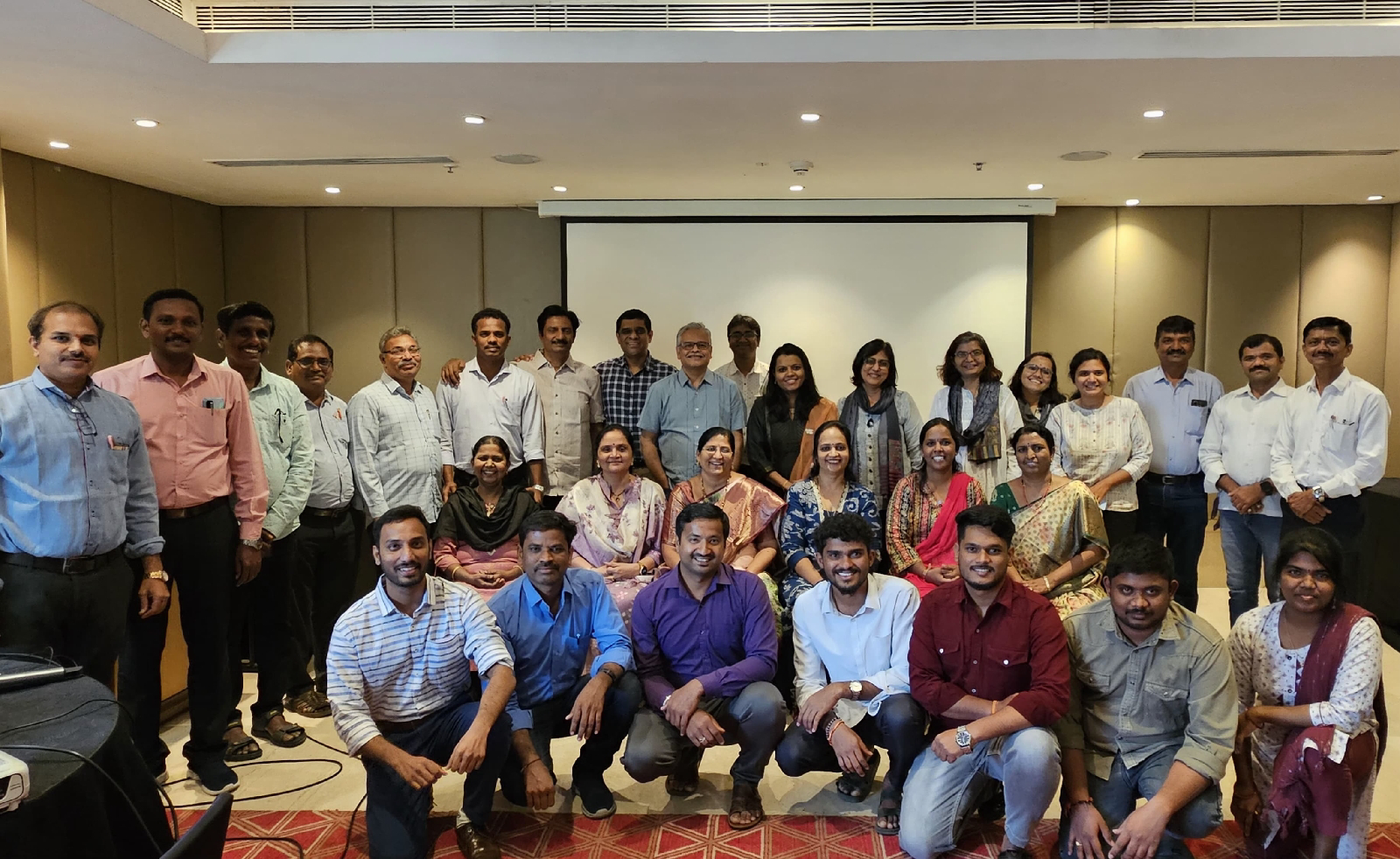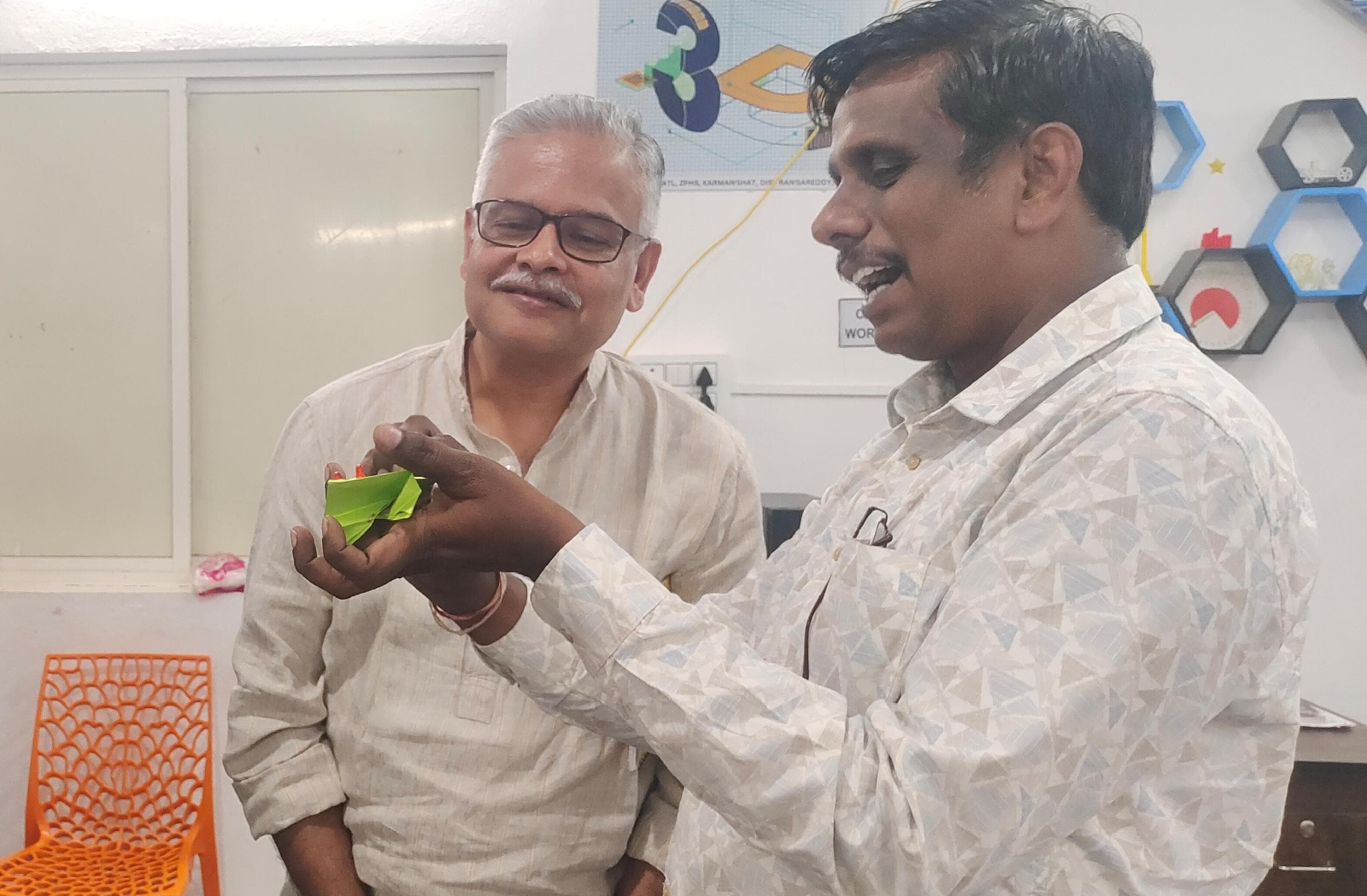ATL Curriculum Framework Workshop: A Collaborative Effort for Future-Ready Education
ATL Curriculum Framework Workshop: A Collaborative Effort for Future-Ready Education
I am pleased to share my experience with the ATL Curriculum Framework Workshop, an initiative driven by UNICEF, Samagra Shiksha, and Vigyan Ashram over the past six months. UNICEF has played a catalytic role in connecting academic experts, technology specialists, and administrators to develop a technology-inclusive curriculum for the next generation of learners.
Key Contributors & Phases of the Workshop
Several individuals and organizations played a vital role in the successful execution of this initiative:
Sheshagiri MK (UNICEF Karnataka), Sudharshan (UNICEF Andhra Pradesh), and Brinda (UNICEF Telangana) provided crucial support.
Kishor Gaiquad from Vigyan Ashram contributed technical expertise.
Administrators from Samagra Shiksha and SCERT ensured seamless coordination.
Over 20 academic experts from Karnataka, Andhra Pradesh, and Telangana participated, contributing significantly to this productive endeavor.
The workshop was conducted in three structured phases, each with a distinct focus:
1. Phase 1 (September 2024): Curriculum Design & Activity Development
Participants listed key concepts for Grades 6 to 10 and designed technology-oriented activities to integrate ATL holistic skills into the curriculum.
2. Phase 2 (December 2024): Hands-On Tech Development & Testing
Vigyan Ashram tech experts and teachers collaborated to develop real-time technology devices and tested them for practical classroom implementation.
3. Phase 3 (February 2025): Review & Finalization
The team reviewed 38 activities, made necessary corrections, refined them, and finalized the content for a teacher-friendly module.
A specialized team, including Sravya (researcher), Namitha Rao (academic advisor), and a small group of teachers, worked on a Design Thinking chapter.
Rajeev (Raspberry Pi expert) and Soyab Pijam provided valuable insights on technology integration in education and emphasized its necessity in the modern curriculum.
The Impact & Future Execution
This workshop was a significant step toward modernizing traditional curriculum practices. Participants not only contributed their expertise but also learned from one another, fostering a collaborative learning environment.
However, the success of this initiative depends on its execution. If teachers fail to implement this new teaching approach using the developed module, all these efforts will lose their impact. Therefore, it is crucial for school and state-level administrators to ensure proper execution. Only with their support can we transform the teaching-learning process into a meaningful, technology-driven experience.
This initiative marks the first step toward updating our education system, and with the right efforts in implementation, it has the potential to redefine learning for the future generations.



Comments
Post a Comment